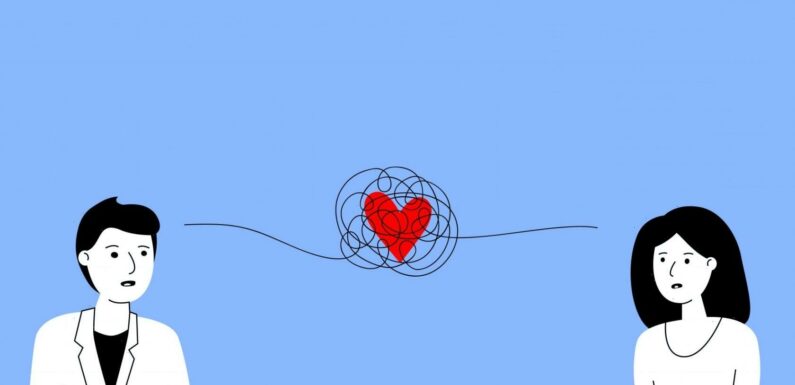
Even when you think your relationship is superior, comparison can have a damaging impact. Here’s why.
In the age of social media, the urge to compare ourselves to others is stronger than ever. We may think we know better, but avoiding it is easier said than done thanks to the highlight reels of people’s lives we’re confronted by on a daily basis.
You might find yourself doing it in real life, too – perhaps without even realising it. From the clothes we wear to the jobs we do, comparing our lives to others can quickly become second nature.
Comparison has plenty of downfalls, however – especially when it comes to our relationships. Humans are naturally inquisitive creatures, and it’s only natural to look at your bond with your partner through the lens of the relationships around you. But doing so can have damaging consequences in the long run.
That’s according to a new study in Personality And Social Psychology Bulletin, which found that comparing your relationship to others can affect the relationship satisfaction and happiness of both you and your partner.
Based on a sample of 78 couples – 38 of whom were married – the study began with a baseline survey which measured each participant’s relationship satisfaction, relationship optimism and self- and partner-perception.
After the initial (baseline) assessment, the participants took part in a seven-day sampling period during which they were asked to report any comparisons they made when prompted to by an app. They were asked to record the nature of their comparison as well as their mood, optimism, satisfaction and self- and partner-perception.
Six months later, the participants were asked to complete a final follow-up questionnaire which asked about similar qualities they’d recorded during the study, such as their relationship satisfaction and optimism.
The results were conclusive. To start with, the research found that couples regularly compare their relationships to those of others, mostly when they think their relationship is better than someone else’s.
The research also found that comparing your relationship to someone else’s can affect both you and your partner – especially when you perceive your relationship to be ‘worse’ than the one you’re comparing it to. In cases such as this, the study revealed, comparison can result in lower relationship satisfaction and more conflict.
While it’s unclear why this happens, some theories have been put forward. Indeed, as the psychologist Arash Emamzadeh suggests in Psychology Today: “Perhaps the self-expansion model can shed some light. According to the self-expansion model, people may use their romantic relationships to “expand the self” and thus experience their partner’s views, identities, and resources (eg knowledge, possessions, social status) as their own.
“For example, suppose John and Jane are married, and John is feeling bad due to his upward comparison. If so, then Jane – to the extent she has included John in her sense of self – may experience negative feelings too.”
Emamzadeh continues: “Another possible reason involves the conscious or unconscious blaming of one’s partner. To illustrate, if John assumes Jane is at least partly to blame for their inferiority as a couple, John reacts to Jane negatively. Jane, perceiving the negativity, will feel bad too.”
If one thing’s for sure, comparison can have a damaging effect on you and your relationship – and avoiding it where possible is probably the best option.
Reflecting on your relationship in light of those around you can give you new ideas about how to navigate life with your partner – but only when you’re committed to making the relationship better, rather than seeing your relationship’s ‘shortfalls’ as dealbreakers.
Images: Getty
Source: Read Full Article
